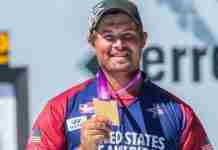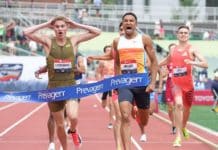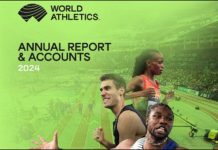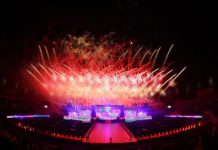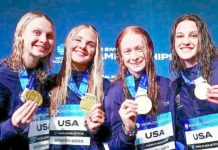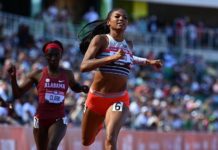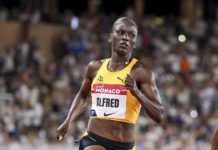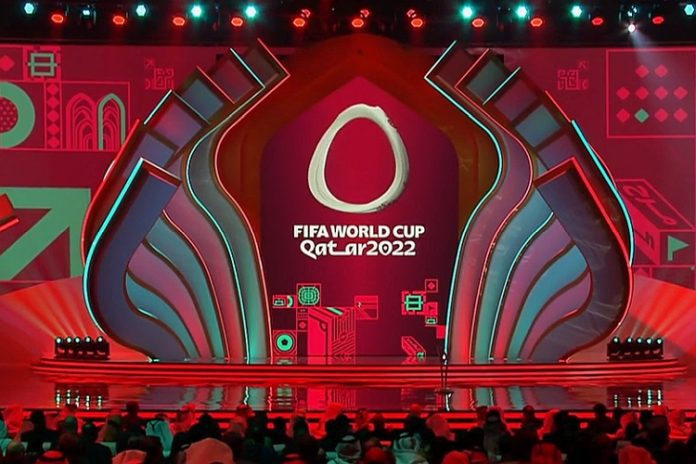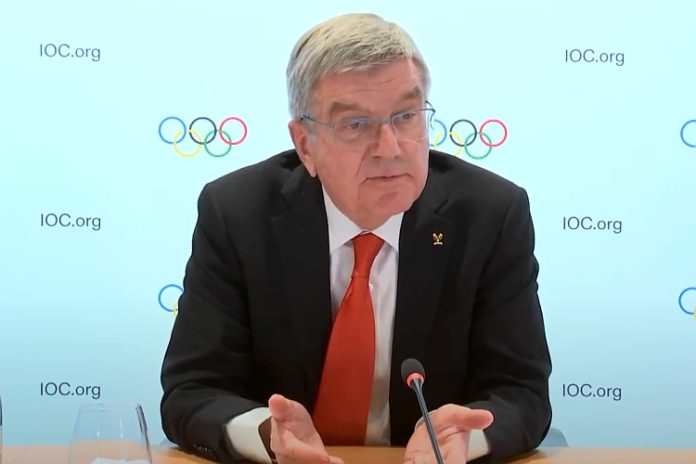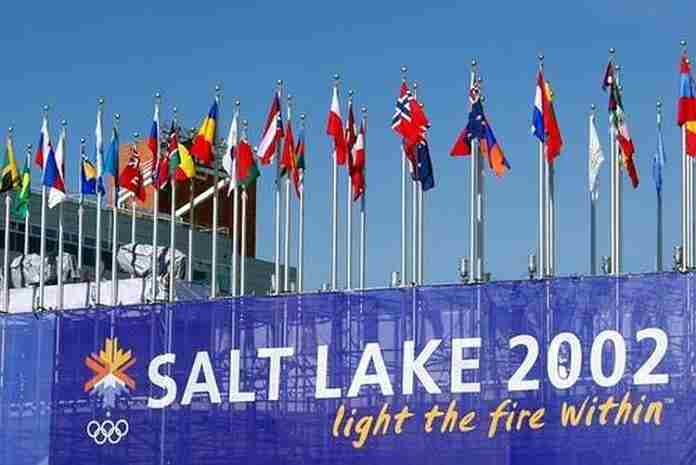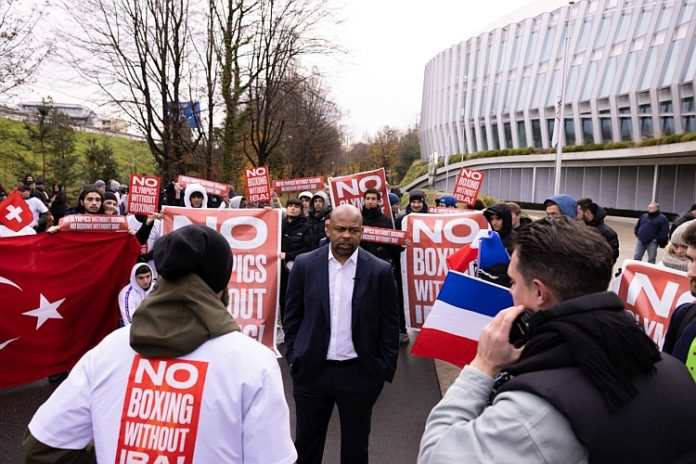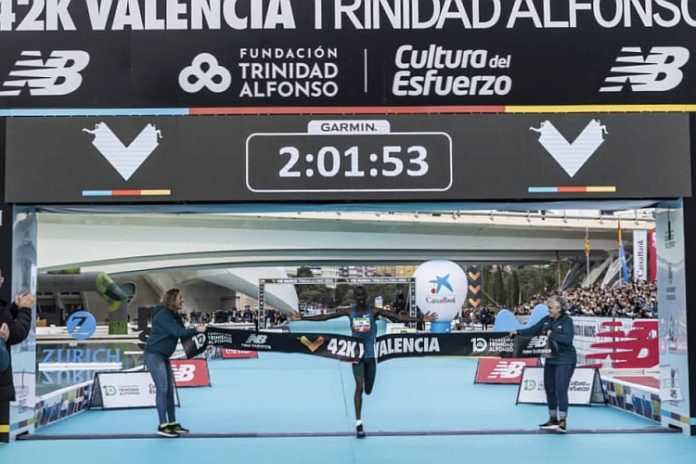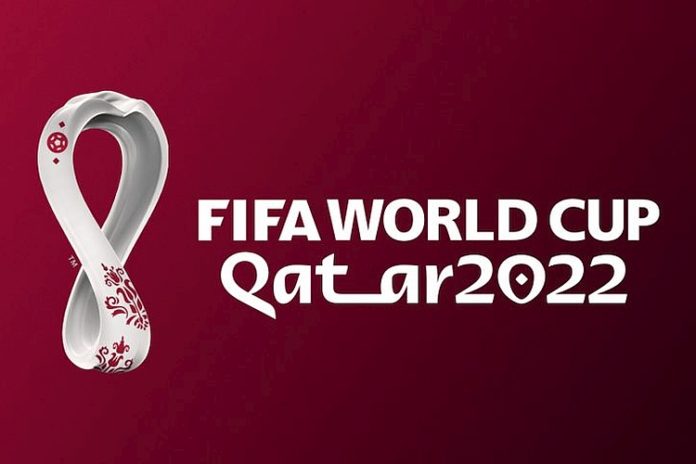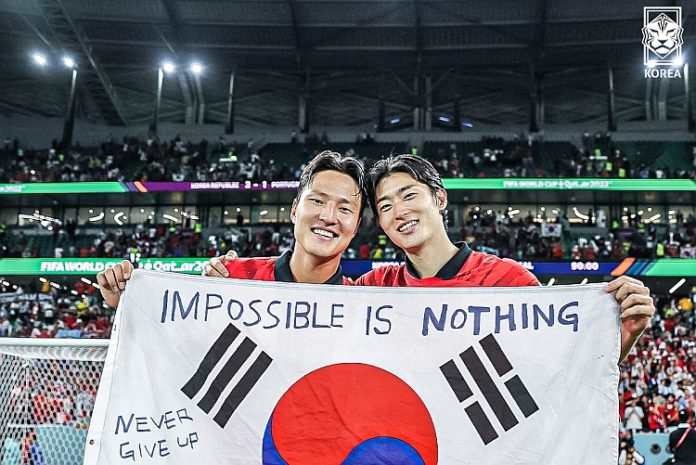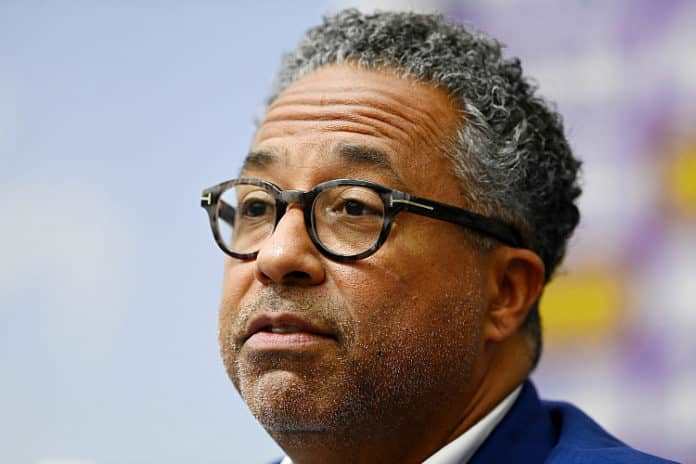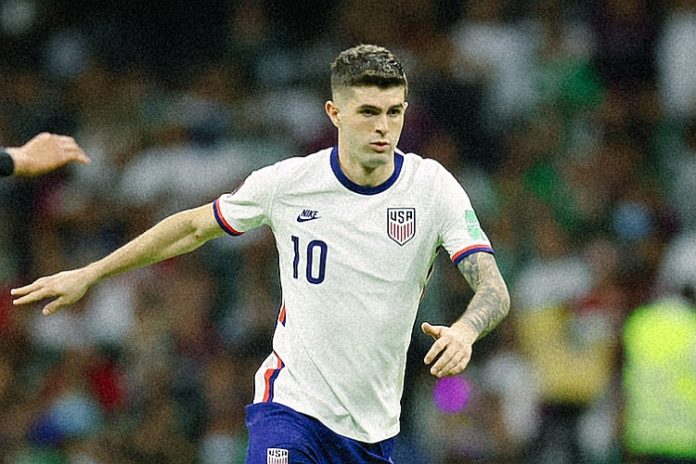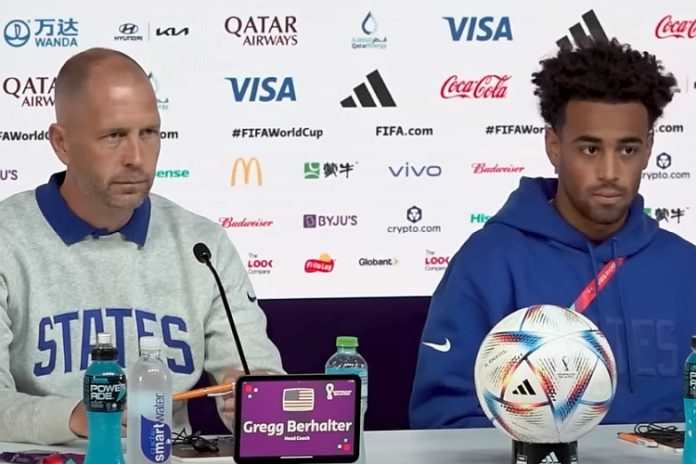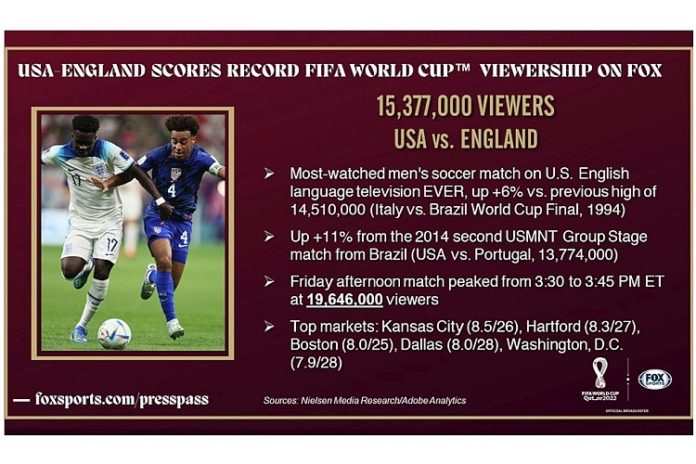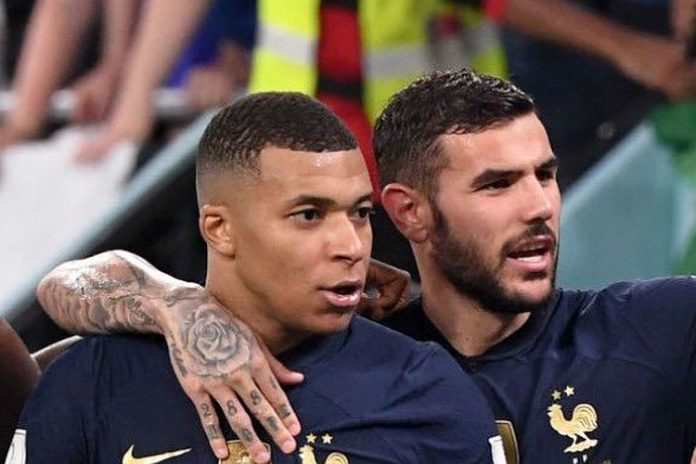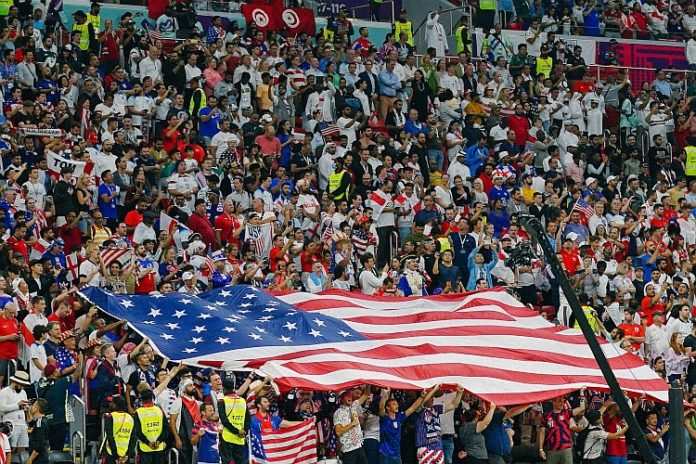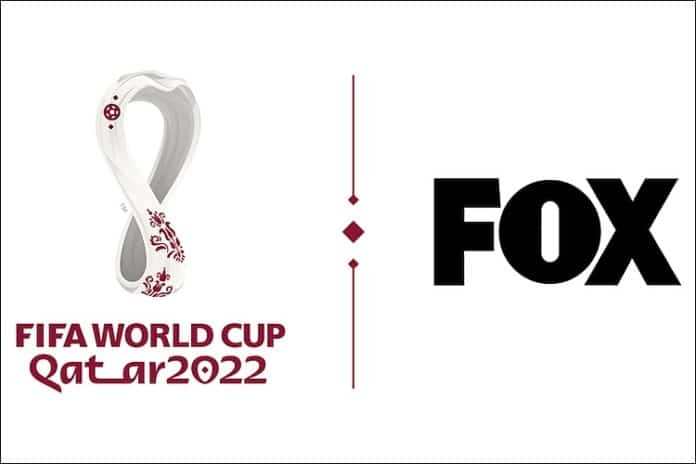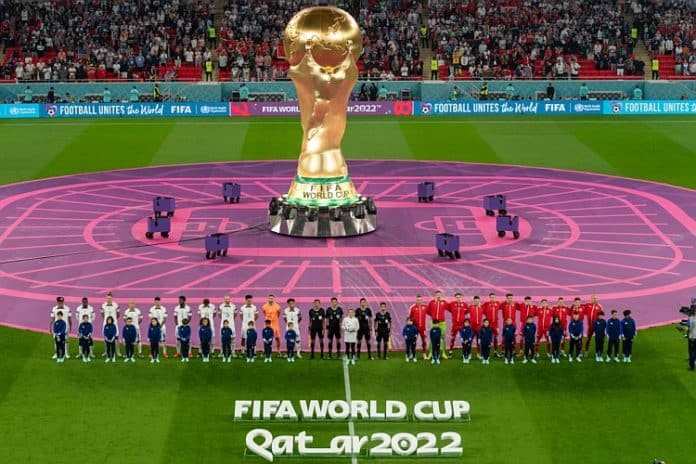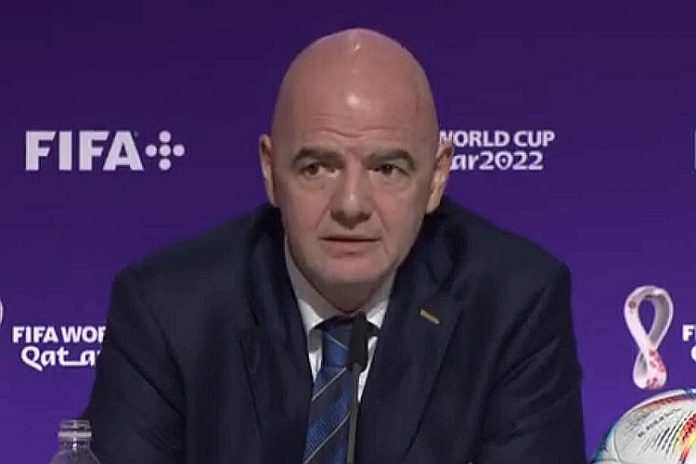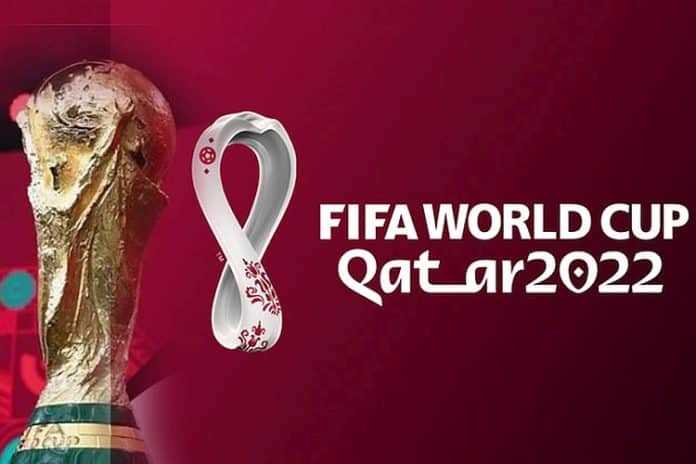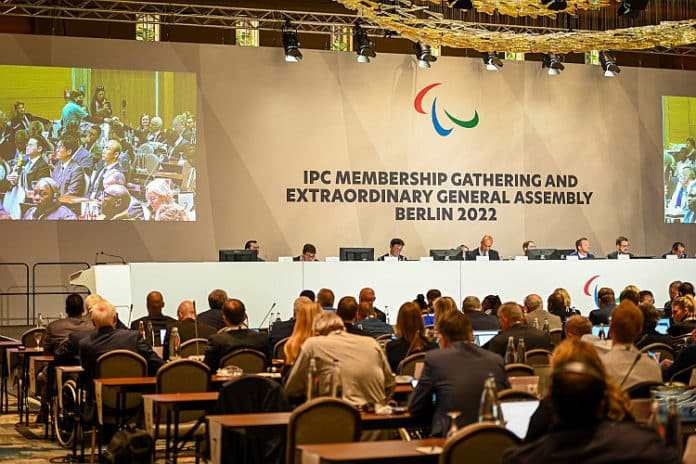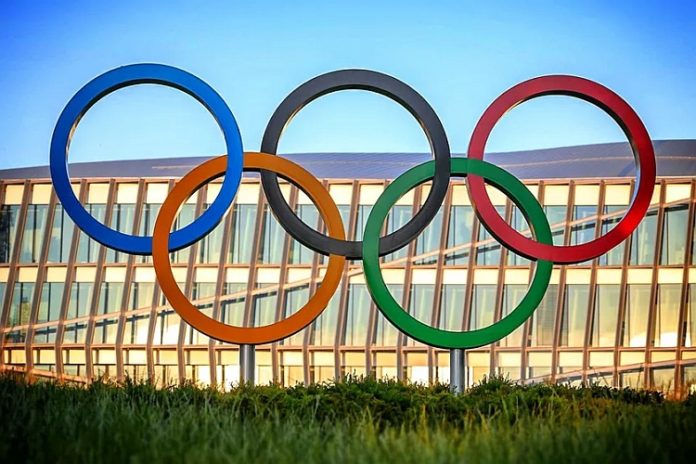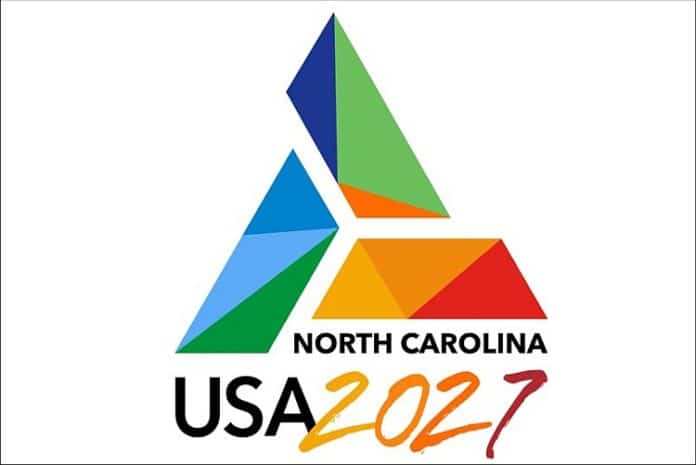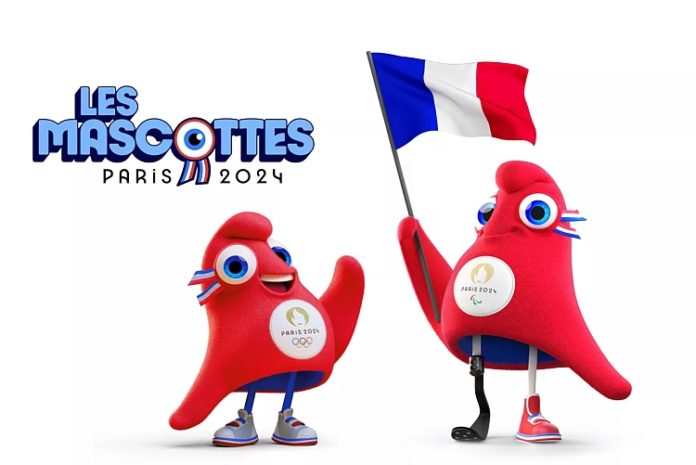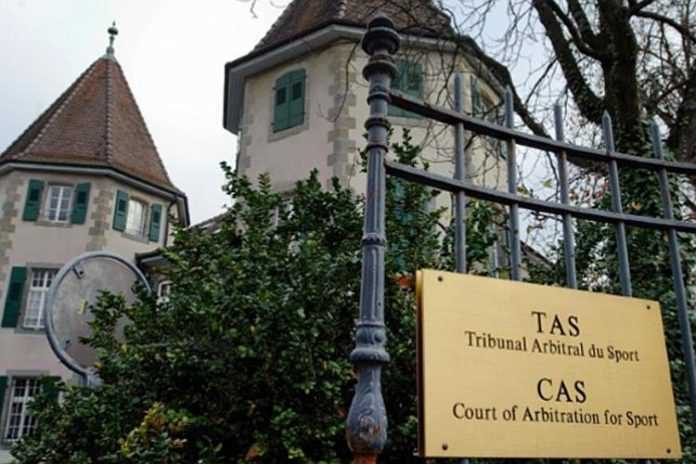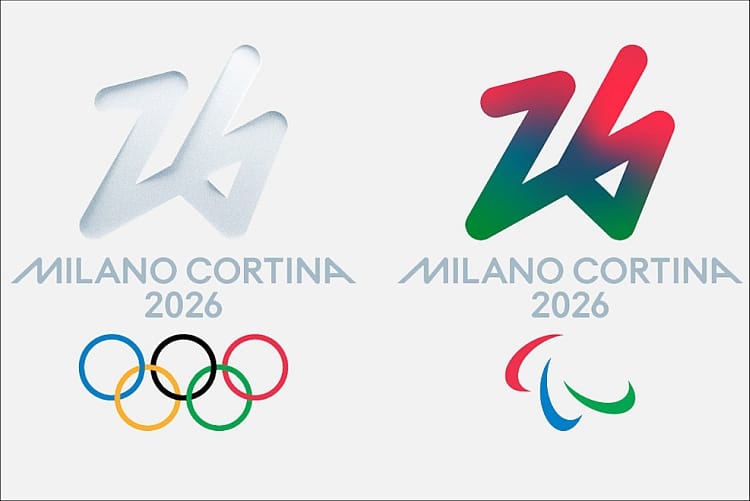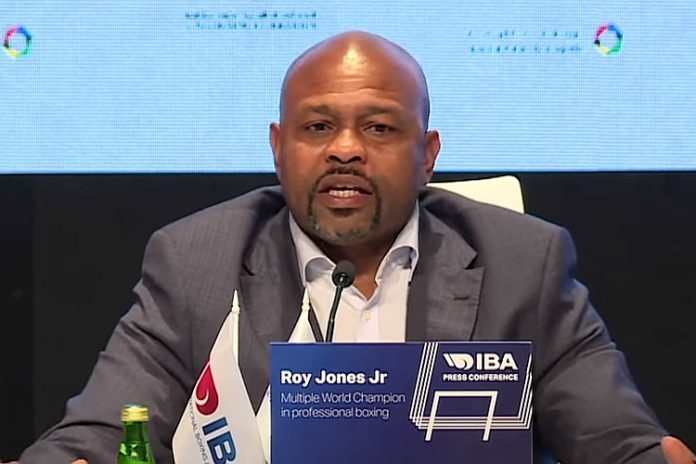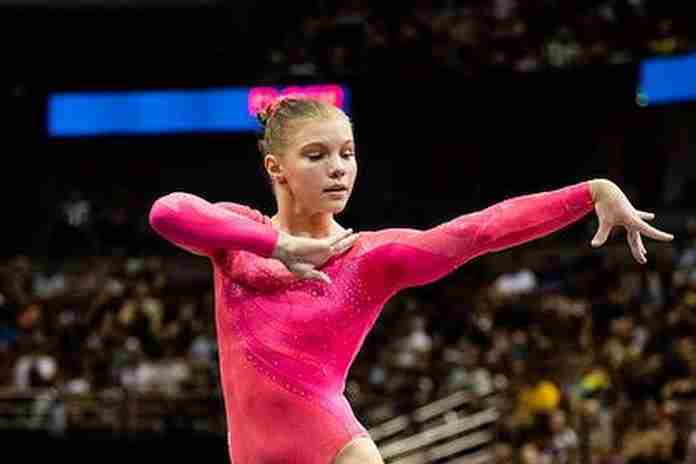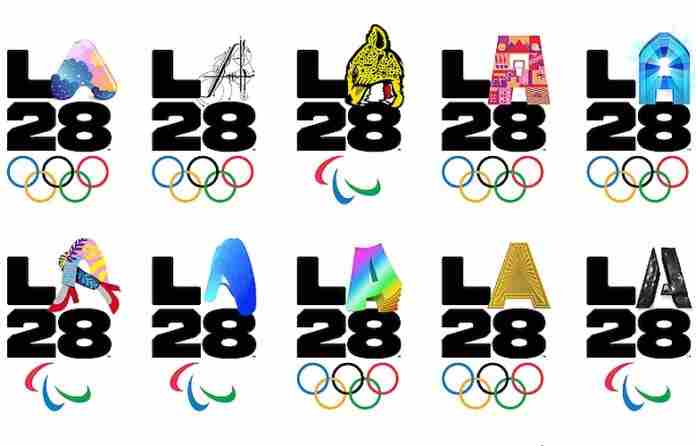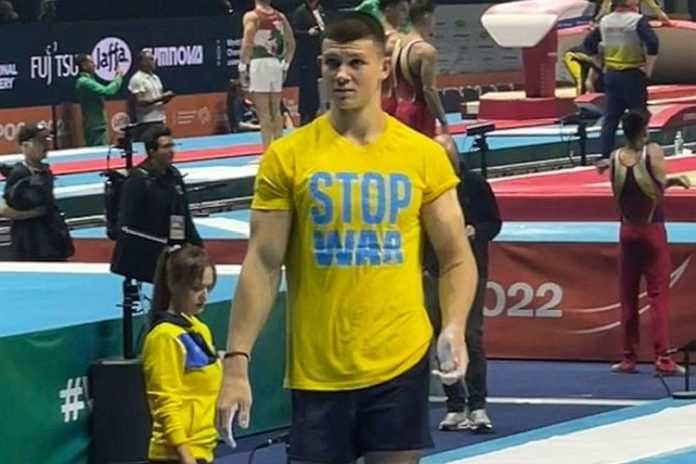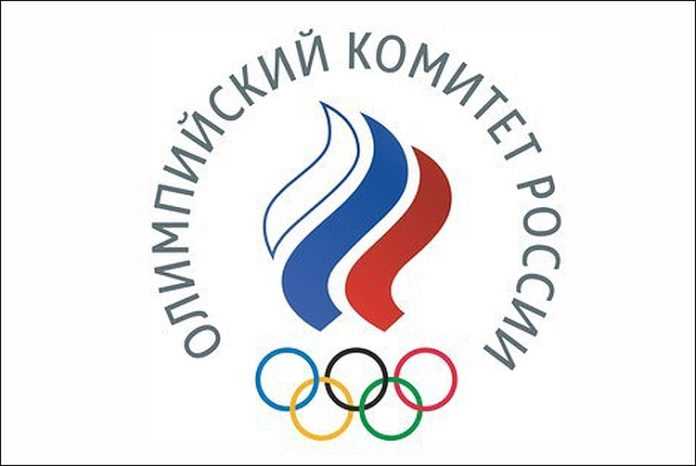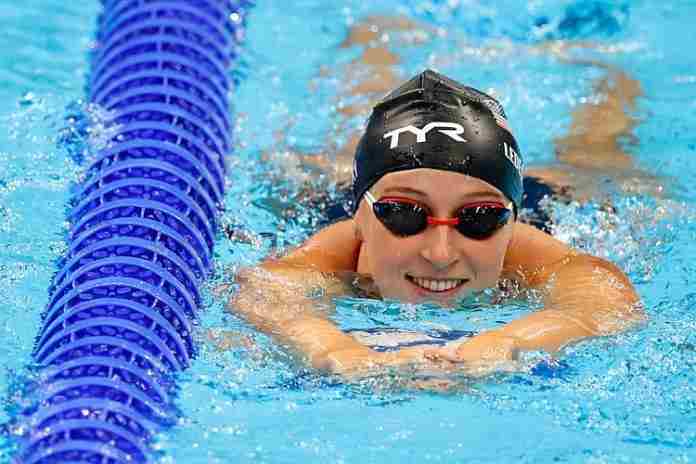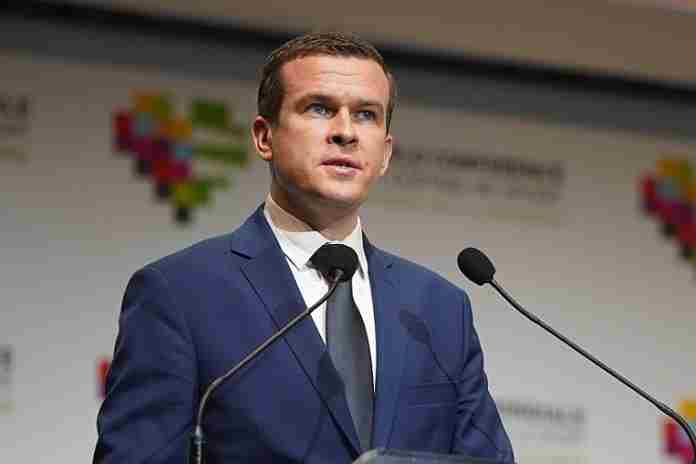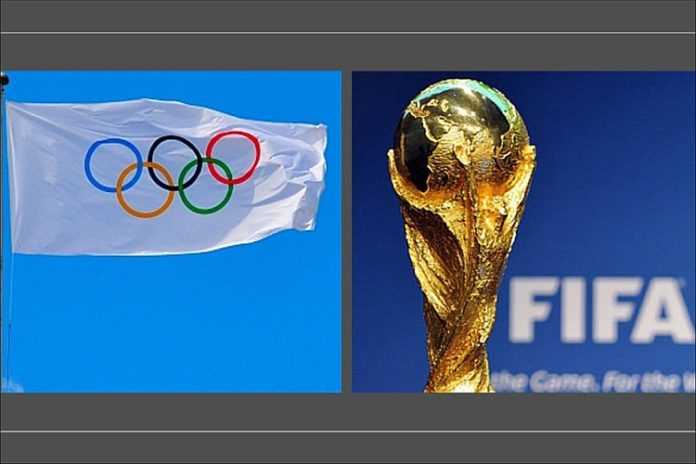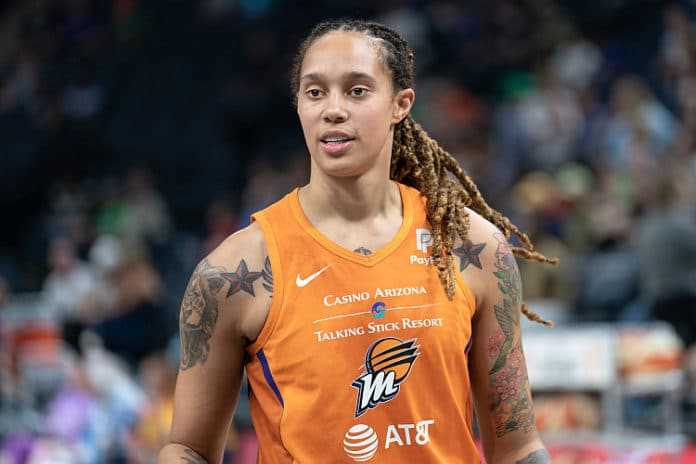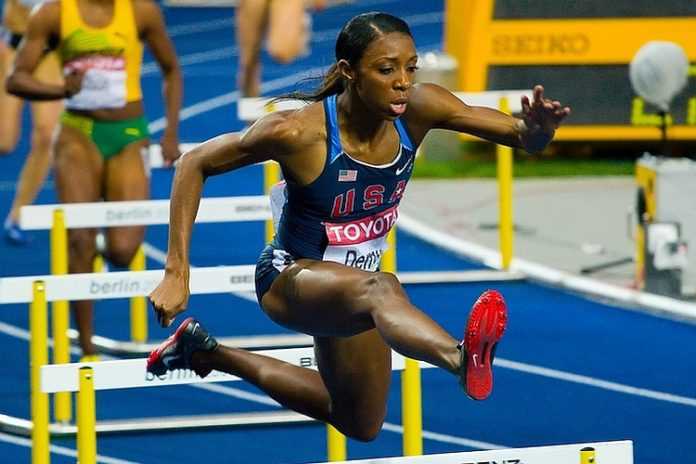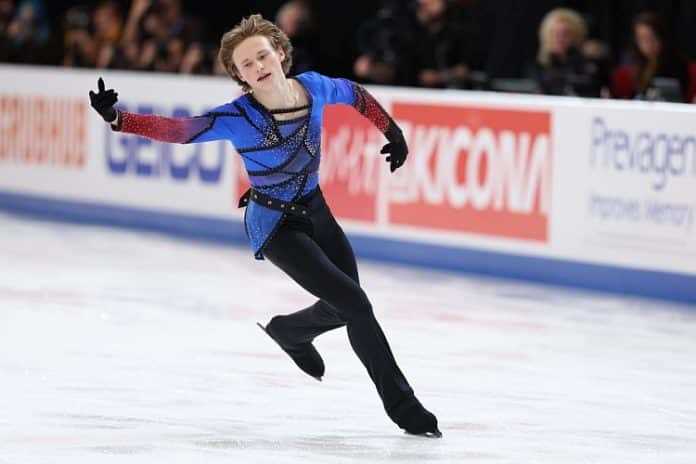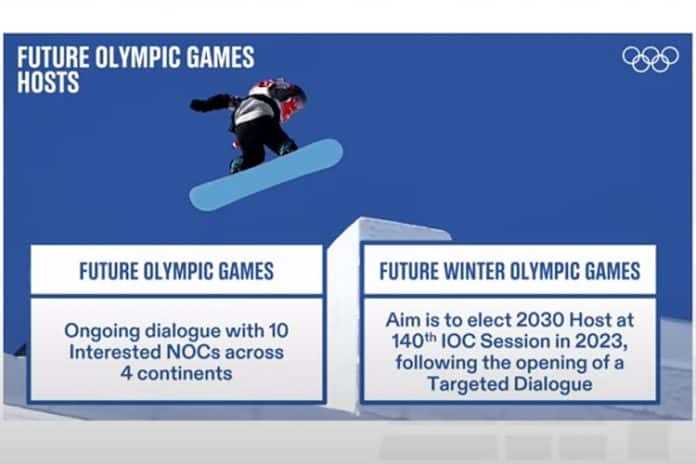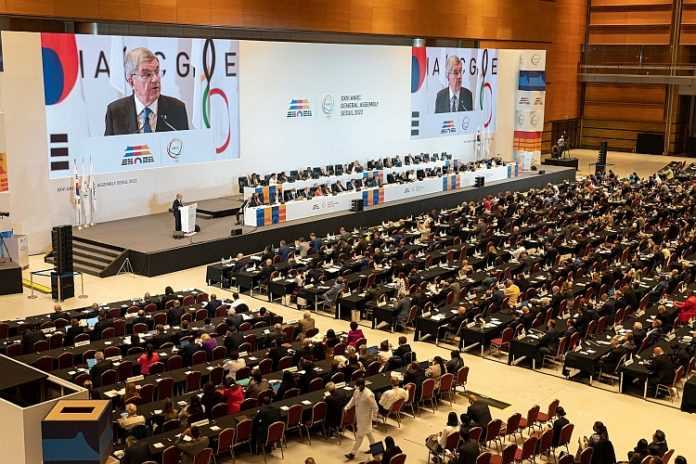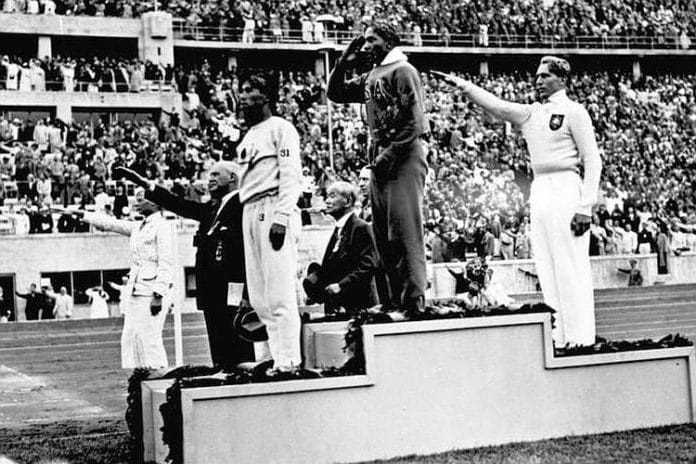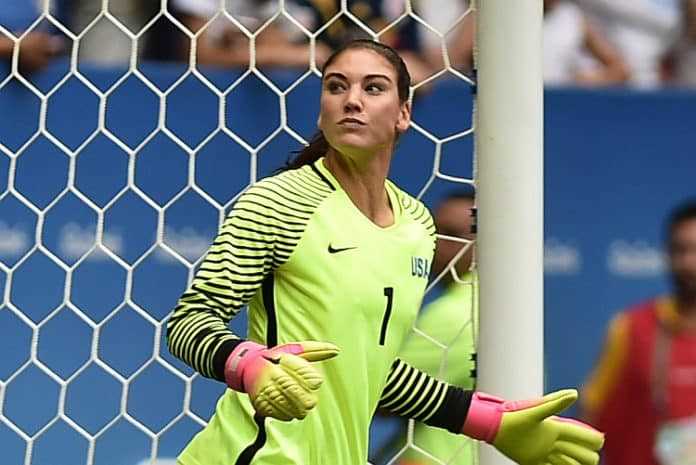★ The Sports Examiner: Surveying, monitoring and explaining the key competitive, economic and political forces shaping elite sport and the Olympic Movement.★
★ Want TheSportsExaminer.com insights for your team? Yes! Click here for info on speaking, research and consulting from editor Rich Perelman. ★
★ To get The Sports Examiner by e-mail: sign up here! ★
≡ THE 5-RING CIRCUS ≡
1. Infantino rips media coverage in pre-World Cup news conference
2. FIFA revenue rises to $7.5 billion for 2022, up more than 15%
3. Banka re-elected as WADA President, Russia’s status in review
4. Russian minister signals interest in Griner prisoner trade
5. World decathlon leader Scantling banned for three years
The 2022 FIFA World Cup is underway, with FIFA chief Gianni Infantino giving a stunning, one-hour talk on migrant rights, Qatari legal restrictions and the banning of beer in stadiums during his pre-event news conference on Saturday. He announced on Sunday that the federation’s revenue will reach $7.5 billion on 2022, about $1 billion more than anticipated. Poland’s Witold Banka was re-elected as President of the World Anti-Doping Agency and he outlined what promises to be a not-very-quick review of Russia’s status once its two-year sanction period ends in December. In Russia, a deputy minister expressed more interest in a prisoner swap with the U.S. that could include basketball star Brittney Griner. U.S. decathlon star Garrett Scantling, the world leader in 2022, was banned for three years for “whereabouts” failures and for tampering.
Oh yes, the FIFA World Cup finally started, with Ecuador schooling Qatar, 2-0.
1.
Infantino rips media coverage in pre-World Cup news conference
“This moral lesson-giving, one-sided, it’s just hypocrisy.”
In an extraordinary news conference on Saturday, FIFA President Gianni Infantino (SUI) spoke to an estimated 400 reporters in advance of the 2022 FIFA World Cup for a solid hour before taking questions, pushing back against critics of the federation and of Qatar as the host country.
Infantino spoke from notes, but was not reading a written statement. In his usual, casual style, with a methodical delivery occasionally punctuated with a harder tone, he ran through just about the entire list of complaints that have been leveled at the about-to-start World Cup. He startled the assembly by starting with:
“Today, I feel Qatari. Today, I feel Arab. Today, I feel African. Today, I feel gay. Today, I feel disabled. Today, I feel a migrant worker.” And then he continued, with 37 minutes of unapologetic comments on FIFA and the migrant worker situation in Qatar:
● “So let’s start with the migrant workers, if you allow me. We have [been] told many, many lessons from some Europeans, from the Western world. I’m European – actually I am European – not just I feel European. I think for what we Europeans have been doing in the last 3,000 years around the world, we should be apologizing for the next 3,000 years, before starting to give moral lessons to people.
“I came here six years ago and addressed the matter of migrant workers, straight on, at my very first meeting. How many of the European or Western business companies, who earn millions and millions from Qatar – or other countries in the region – billions, every year, how many of them have addressed migrant worker’s rights, with the authorities?
“I have the answer to you: none of them. None of them, because [that means changing] the legislation, which means less profit. Instead of one billion, well maybe you make only 900 million. But we did and FIFA generates much, much, much less than any of these companies, from Qatar.”
● “So, speaking about workers, I bumped into a migrant study, not a FIFA study, a Human Rights Watch study, one of these companies that I think is also criticizing certainly FIFA, certainly rightfully, many times, I guess. What that study says, basically, is because of the European migration policy, 25,000 migrants died since 2014, in eight years. A thousand, two hundred only this year. Human beings died.
“So if we take two steps back of this – I also wonder, but I always come back to that – why nobody ask for a compensation to be paid for the families of these migrants who died. Their life is not worth the same? “
● “So if you go two steps back and you look at this issue of migration, and the situation of hundreds of thousands of women and men from developing countries who would like to offer their services abroad, in order to help and to give a future to their families back home, well Qatar is actually offering them this opportunity. Hundreds of thousands of workers of developing countries come here, they earn 10 times more than what they earn in their home country and help their families to survive. And within a legal way.
“We in Europe, we close our borders and we don’t allow practically any worker from these countries, who earn obviously very low income, to work legally in our countries, because we all know there are many illegal workers in our European countries [in] living conditions which are also not really the best. …
“So I wonder why nobody recognized the progress that has been made, since 2016. The kafala system was abolished, minimum wages were introduced, heat protection measures were taken. ILO, international unions acknowledge that, but media don’t, or some don’t.”
Infantino spoke in detail about the main demands of human rights and labor organizations about a migrant help center, compensation for workers who did not receive their wages or were hurt or died, and long-term assurances that the changes already made are permanent. He described each in detail and summarized:
“So we have been seeing [1] there is a permanent office of [International Labor Organisation], or there will be – and we will be back, we will be here to check, don’t worry, because you will be gone – [2] compensation for workers who are not paid or who have accidents, exists, in very significant amounts, and [3] FIFA has a legacy fund for this World Cup.”
Infantino noted that Qatar already has a worker’s support and insurance fund that has paid $350 million in claims since 2018; this in response to calls for FIFA to pay $440 million or more to workers and families injured or killed in the construction of the World Cup stadiums. The Legacy Fund is not a new concept; it was reportedly established after the 2010 World Cup in South Africa and $260 million has been contributed across the 2010-14-18 events.
He then launched into a discussion on “the LGBT situation”:
“I have been speaking about this topic with the highest leadership of the country, several times, not just once. They have confirmed and I can confirm that everyone is welcome.
“If you have a person here and there who says the opposite, well it’s not the opinion of the country. And certainly not the opinion of FIFA. This is a clear FIFA requirement; everyone has to be welcomed. Everyone who comes to Qatar is welcome, whatever religion, race, sexual orientation, belief she or he has. Everyone is welcome. This is our requirement and the Qatari state sticks to that requirement.
“Now you will tell me, ‘yeah, but this legislation which prohibit that and whatever’, you have to go to jail, I don’t know what. Yes, these legislations exist in many countries in the world. These legislations existed in Switzerland, when Switzerland organized the World Cup in 1954; I was not born yet.
“So again, like for the workers, these are processes. So what do you want to do about it? You want to stay home and hammer and criticize and say how bad they are: these Arabs or these Muslims or whatever, because it’s not allowed to be publicly gay? Of course, I believe it should be allowed, as FIFA President. But, I went through a process, I went through a process. If I ask the same question to my father, who is not here any more, he would probably have a different answer than me. And my children will have again a different answer than me. So if somebody thinks by just hammering and criticizing, and hammering and criticizing, we will achieve something, well, I can tell you it will achieve exactly the opposite. Because this will be viewed as provocation, and then if you provoke me, I react. And that’s bad.”
And he did not let up, addressing the media directly:
“The only thing I am asking you: engage, help, don’t divide, try to unite. The world is divided enough. We are organizing a World Cup. We’re not organizing a war. We organize a World Cup, where people who have many problems, everyone in his or her life, want to come and enjoy.
“Look at the city, it’s beautiful. It’s beautiful, it’s geared up, people are happy, to celebrate. They were happy when the teams come, and when the teams come, they go to see the teams and what do I read, ‘well, these people they don’t look like English so they shouldn’t cheer for English.’ Because they look like Indians. I mean, what is that? Can somebody who looks like an Indian not cheer for England or for Spain or for Germany? You know what this is. This is racism. This is pure racism. And we have to stop that.”
He also addressed the late ban on sales of beer in the World Cup stadiums, saying “I mean, honestly, if this is the biggest issue we have for the World Cup, I will sign immediately and go to the beach and relax until the 18th of December.” He indicated that AB InBev will continue as a FIFA sponsor through to the 2026 World Cup in Canada, Mexico and the U.S.
He finished with:
“Don’t criticize Qatar, don’t criticize the players, don’t criticize anyone. Criticize FIFA, criticize me if you want, because I am responsible for everything, but let the people enjoy this World Cup.”
It was a stunning performance, but was immediately criticized, of course. An Amnesty International comment included:
“In brushing aside legitimate human rights criticisms, Gianni Infantino is dismissing the enormous price paid by migrant workers to make his flagship tournament possible – as well as FIFA’s responsibility for it. Demands for equality, dignity and compensation cannot be treated as some sort of culture war – they are universal human rights that FIFA has committed to respect in its own statutes.
“If FIFA is to salvage anything from this tournament, it must announce that it will invest a significant part of the $6 billion the organisation will make from this tournament and make sure this fund is used to compensate workers and their families directly.”
CNN reported comments from the human rights organization Equidem’s chief executive, Mustafa Qadri, who said in a statement: “History will not judge this moment kindly. Infantino’s speech was an insult to the thousands of hard-working women and men who have made the World Cup possible.
“He had a perfect opportunity to acknowledge that thousands of women and men from the poorest countries came to the richest only to face deception, exploitation and discrimination.
“Every day workers are contacting Equidem about unpaid wages, abuse and being terrified about speaking out for fear of retaliation from employers. There is a solution here: Infantino should establish a comprehensive compensation fund and demand Qatar establish an independent migrant workers’ centre so workers have a safe space to raise complaints and get the support they need.”
In fact, Infantino covered both of those suggestions in detail. Sky Sports News senior reporter Melissa Reddy, reporting from Qatar said in part:
“What absurd, offensive, misleading thing did he not say? This is extraordinary and unlike anything I’ve ever heard before. …
“It is an absolutely astounding address from the FIFA president and it’s probably even more astounding that he is being re-elected unopposed after being able to say stuff like this.”
2.
FIFA revenue rises to $7.5 billion for 2022, up more than 15%
The money continues to roll in, as FIFA President Infantino told the member associations on Sunday that the federation’s revenues will approach $7.5 billion for 2022, about $1.0 billion more than was expected.
Total expenses for 2022, which includes production of the World Cup and the establishment of a Qatar 2022 Legacy Fund following its end, will be about $6.5 billion, leaving a surplus of $1.0 billion. Infantino said that with this money “we can then invest in football immediately, starting from now and for the next cycle to make football grow even more around the world.”
Infantino also underscored the progress being made in moving money from FIFA’s Zurich headquarters out to the associations:
“[I]nstead of the $250,000 per year that you are receiving only in 2015 – so before my election in 2016 – today every association around the world receives $2 million a year as a minimum. … you can see the figures concretely, $8 million per association for the [four-year] cycle, plus $1.2 million for the travel and equipment contributions, $60 million for the confederations and $5 million for the zones or regional confederations.”
¶
While nine European teams continue with plans to have their captains wear a multi-colored “OneLove” armband as a show of support for LGBTQ rights in Qatar, FIFA announced a social-messaging program in concert with UNESCO, the World Health Organization and world Food Programme.
Seven different messages will be promoted, one for each round of the tournament, starting with “#Football Unites The World” for the first set of group matches, with the slogans on captain’s armbands, on stadium scoreboards, on FIFA and United Nations digital platforms and elsewhere.
FIFA could issue fines to teams that wear armbands which are not approved.
¶
The Qatar 2022 “Fan Leader” program, in which selected supporters from each participating country were provided with travel and accommodations at the World Cup, was slimmed down according to the TheGuardian.com. A message sent from the organizing committee included:
“Due to the recent developments in the media, we are keen to protect our visiting fans from the erroneous misinformed statements regarding ‘fans receiving payment for the trip’. Accordingly, the daily allowance will unfortunately no longer be issued. The allowance was intended as a small uplift on your own personal funds to assist with refreshments during your stay.”
3.
Banka re-elected as WADA President, Russia’s status in review
Poland’s Witold Banka and China’s Yang Yang were unanimously re-elected for their second (and final) three-year terms as President and Vice President of the World Anti-Doping Agency by the WADA Foundation Board, meeting in Montreal (CAN). Both will serve through the end of 2025.
The status of the Russian Anti-Doping Agency was a major feature of the Executive Committee and Foundation Board meetings, as the WADA sanctions – as modified by the Court of Arbitration for Sport in 2020 – will expire on 17 December 2020. Up next:
“WADA will launch a three-phase process. First, WADA Management will carefully assess whether RUSADA has met all the conditions of reinstatement as laid out in the CAS award. Second, once WADA Management considers that all conditions have been met, it will refer the matter to the independent Compliance Review Committee (CRC) for its review. Third, following that review, if the CRC agrees with WADA Management that the conditions have been met, it will make a recommendation to the ExCo for its consideration.”
So nothing is going to happen quickly, which Banka emphasized:
“Trust in Russia’s anti-doping system is still very low. They have a lot of work to do to rebuild that trust. RUSADA remains non-compliant. The process for reinstatement does not end on 17 December – in fact, the process only starts on that date. Through the three phases of that process, compliance will be robustly assessed. We will need to verify each and every one of the reinstatement conditions. Verify means verify – not simply accepting anyone’s word for it.”
The WADA budget is growing, slowly but surely. It spent a record $42.178 million in 2021 and projects budgets of $46.5 million, $50.2 million and $53.0 million for the next three years. WADA now has 153 staff (from 59 countries) spread among six offices, with 129 at the headquarters in Montreal.
4.
Russian minister signals interest in Griner prisoner trade
“I want to hope that the prospect not only remains but is being strengthened, and that the moment will come when we will get a concrete agreement.
“The Americans are showing some external activity, we are working professionally through a special channel designed for this. Viktor Bout is among those who are being discussed, and we certainly count on a positive result.”
That’s Russian Deputy Foreign Minister Sergei Ryabkov, quoted on Friday by Interfax, referring to arms dealer Bout, caught by the U.S. in 2008 and convicted in 2012. He could be swapped for Russian-held American prisoners Paul Whelan or two-time Olympic gold medalist Brittney Griner.
This is a much warmer attitude towards an exchange from Russia than previously seen; the U.S. State Department has repeatedly complained that no serious response to American offers has been made. State Department deputy spokesman Vedant Patel said, “The Russian government’s failure to seriously negotiate on these issues in the established channels, or any other channel for that matter, runs counter to its public statements. Ultimately, here, actions speak louder than words.”
5.
World decathlon leader Scantling banned for three years
On 6-7 May this year, American Garrett Scantling, now 29, won the USA Track & Field national decathlon championship with a world-leading score of 8,867, moving him to no. 7 on the all-time list, and no. 3 all-time U.S.
He disappeared from competition after that, and now we know why.
Scantling has been suspended for three years, until 27 June 2025, meaning he will miss the 2023 World Championships and the 2024 Paris Olympic Games. According to the U.S. Anti-Doping Agency:
“Within a 12-month period, Scantling accrued three Whereabouts Failures, the first on August 25, 2021; the second on January 24, 2022; and the third on April 9, 2022. Scantling was successfully tested nine times between his first Whereabouts Failure and his provisional suspension.
“The accumulation of three Whereabouts Failures within a 12-month period constitutes a rule violation under the USADA Protocol for Olympic and Paralympic Movement Testing, the United States Olympic and Paralympic Committee National Anti-Doping Policy, and the World Athletics Anti-Doping Rules, all of which have adopted the World Anti-Doping Code.
“During an investigation into his third potential Whereabouts Failure, Scantling also provided an altered email in defense of his third Whereabouts Failure, constituting a Tampering violation.”
Scantling was disqualified for all competitions after 27 June 2022, so his world-leading mark for 2022 will stand.
The sanction for a whereabouts failure is normally four years, but Scantling admitted the violation and accepted the sanction and received a one-year reduction. Scantling finished fourth in the Tokyo 2020 Olympic decathlon, but won’t have a shot at a worldwide medal until 2025 at the earliest.
≡ FIFA WORLD CUP ≡
After all the shouting off the field, the opening match was played on Sunday, with host country Qatar looking lost throughout most of the first half and losing to Ecuador, 2-0, in Group A.
Ecuador, which finished fourth in the South American qualification tournament, was the aggressor from the start and got a goal in the third minute from striker Enner Valencia that was ruled offsides on a video review using a high-tech system that showed forward Michael Estrada’s right foot to be ahead of the play.
No matter, as Valencia was submarined by Qatari keeper Saad Al-Sheeb in the 15th minute for a penalty and Valencia calmly rolled the ball to the right side of the goal as Al-Sheeb went the other way in the 16th minute.
Valencia scored again with a brilliant header in the 31st minute off a cross from Angelo Preciado to the far side of the Qatar goal, for a 2-0 edge that looked like – and was – insurmountable.
Qatar showed glimpses of promise, with forward Almoez Ali missing a header that could have been a score in stoppage time at the end of the half, and a shot that went over the bar from substitute striker Mohammed Muntari in the 86th minute. But they rarely threatened.
Ecuador ended with 54% of possession, but it seemed to be much more than that. Ecuador was credited with six shots and three on goal, to five for Qatar, of which none were on goal.
The tournament gets fully underway on Monday, with three games, including the U.S. and Wales; all games are shown in the U.S. on FOX or FS1 in English and Telemundo in Spanish.
≡ WORLD CHAMPIONSHIPS ≡
● Gymnastics ● The 36th FIG World Trampoline Championships concluded on Saturday in Sofia (BUL), with a startling end to China’s dominance of the men’s Trampoline competitoin.
The Chinese had won 11 individual titles in a row and had defending champion Langyu Yan back at the top of a three-man entry in Sofia. But none got out of the second qualification round and made it to the final. That opened the door for Tokyo 2020 bronze medalist Dylan Schmidt of New Zealand, who won at 60.720, well ahead of France’s European Champion Allan Morante (58.710) and Yamato Ishikawa (JPN: 58.480).
Japan’s Hikaru Mori won the women’s title for the second time – also in 2019 – scoring 56.230. Defending champ Bryony Page (GBR) took the silver (55.950) and China’s Yicheng Hu (55.810) won her first Worlds medal in third. American Jessica Stevens (54.860) was sixth.
Portugal won the men’s Team title over France, and Americans Ruben Padilla and Tomas Minc went 1-3 in the Double Mini final, with Padilla moving up from silver in 2019. Spain won the men’s Double Mini team with the U.S. third.
China won the women’s Team title over Great Britain, and New Zealand’s Bronwyn Dibb won the Double Mini event over American Tristan van Natta, with Australia taking the Double Mini Team event over the U.S.
● Taekwondo ● The 25th World Taekwondo Championships – the first since 2019 – were held in Guadalajara, Mexico, with three wins for the home team and an American gold in the women’s division.
Mexico claimed world titles from men’s Heavyweight (+87 kg) Carlos Sansores, moving up from his 2019 silver; from Daniela Souza in the women’s Flyweight (49 kg) and in the women’s Welterweight class from Leslie Soltero (67 kg).
The U.S. for a win from Makayla Greenwood at 53 kg (Bantamweight), defeating China’s Ju Zuo in the final by two rounds to one.
China scored two wins, from Yushuai Liang in the men’s Bantamweight (63 kg) class and Zongshi Luo in the women’s Featherweight (57 kg) division. South Korea got men’s wins from Do-yun Kwon in the 68 kg Featherweight class (defeating Britain’s Olympic silver winner Bradly Sinden), and by Woo-hyeok Park in the 80 kg Welterweight division.
Serbian fighters won both Middleweight divisions! Nadica Bozanic took the women’s 73 kg title, defeating defending World Champion Da-bin Lee (KOR) in the final, and Mehdi Khodabakhski took the men’s 87 kg class.
The other men’s winners included Omar Salim (HUN: 54 kg), Daniel Quesada (ESP: 74 kg) and Tokyo Olympic champ Vito Dell’Aquila of Italy at 58 kg.
Belgium’s Sarah Chaari won the women’s Lightweight (62 kg) class to add to her World Junior title won earlier this year, and Svetlana Osipova won the Heavyweight (+73 kg) division for her first Worlds medal. Croatia’s Lena Stojkovic took the 46 kg “Finweight” title.
Mexico (3-1-2) and China (2-3-1) each won six medals for top honors, followed by South Korea, Serbia and Spain with five each. The U.S. had only the gold-medal performance from Greenwood.
≡ PANORAMA ≡
● U.S. Olympic & Paralympic Committee ● The Commission on the State of the U.S. Olympics and Paralympics is moving forward, slowly. University of Baltimore law professor Dionne Koller said in an e-mail message:
“Members of the Commission have been sworn in and [co-chair Han Xiao] and I continue to work with relevant government agencies on essential infrastructure that will support our charge. We have a meeting scheduled in December, and once the Commission is ready and able to solicit public comments, we will issue notices and spread the word.”
The Commission was to have finished its work prior to last year’s Olympic Games in Tokyo, but has been delayed. House Bill 8309 was introduced in July to amend the Commission’s end date to “Not later than September 30, 2023.” The bill was referred to the House Judiciary Committee, but has not been acted on yet.
● Alpine Skiing ● A new season, but more record-setting wins for American superstar Mikaela Shiffrin at the iconic annual Slalom program at Levi (FIN), where the “prize” is a reindeer!
Actually, all the winner gets to do is to name a reindeer from the Ounaskievari Reindeer Farm, but it’s a great promotion for the Levi area, up close to the Arctic Circle.
On Saturday, Shiffrin was third after the first run, but poured on the speed on the second run to win with a combined time of 1:51.25, ahead of Anna Larsson (SWE: 1:51.41) and Beijing Olympic champ Petra Vlhova (SVK).
On Sunday, Shiffrin had the fastest first run and confirmed her status with the quickest second run to finish at 1:52.21, just 0.28 seconds ahead of five-time Olympic medalist Wendy Holdener (SUI: 1:52.49) and Vlhova (1:52.89).
The two wins in Levi give Shiffrin’s 76 career World Cup wins, now six behind fellow American Lindsey Vonn (82) for the most wins ever on the women’s side, and her 49th in Slalom, the most by anyone in a single event.
Shiffrin’s wins also passed Vlhova, at six reindeer to five! Shiffrin’s previous wins came in 2013 (and a reindeer she named “Rudolph”), 2016 (“Sven”), 2018 (“Mr. Gru”) and 2019 (“Ingemar”). She named her first reindeer of 2022 “Sunny” in honor of U.S. teammate Ava Sunshine’s World Cup debut and Sunday’s reindeer was named “Lorax” in honor of her late father.
● Archery ● The 2022-23 World Archery Indoor (18 m) World Cup series opened in Strassen (LUX) with the GT Open, with France’s Florent Mulot winning the men’s Recurve title over Sachin Gupta (IND) by 6-0 in the final, and Tokyo Mixed Team silver medalist Gaby Schloesser (NED) taking the women’s victory in a 7-1 final over France’s Jennifer Devaux.
● Basketball ● With wins at the 2019 FIBA World Cup and the 2022 EuroBasket, Spain took over the no. 1 spot in the FIBA men’s World Rankings from the U.S.
The rankings are based on a points accumulation over several years and with the U.S. making only the quarterfinals in the 2019 World Cup, Spain earned the top spot with 758.6 to 757.5 for the American men. Australia is third at 740.3. The U.S. had been ranked no. 1 since 2010.
● Bobsled ● Sochi 2014 bronze medalist Aja Evans, who rode with Jamie Greubel, was suspended for two years by the U.S. Anti-Doping Agency for failing to take a doping test last March.
Evans, 35, “failed to submit to sample collection after being notified by a USADA doping control officer during an out-of-competition test on March 29, 2022.” The penalty is usually four years, but USADA reported that the missed test was due to negligence and not intentional. Her sanction period will end on 8 November 2024, so she could compete for a spot at the 2026 Winter Games if she wants to,
● Figure Skating ● The fifth of seven legs of the ISU Grand Prix was in Sapporo (JPN) for the annual NHK Trophy, with the host country winning two events and grabbing five medals in all.
Reigning World Champion Shoma Uno won the men’s title, scoring 279.76 points and coming up from second to win the Free Skate and his third NHK Trophy victory. Teammate and Short Program leader Sota Yamamoto was second at 257.85 and Junhwan Cha (KOR: 254.76) was third.
Japan’s Riku Miura and Ryuichi Kihara were decisive winners in Pairs, piling up 216.16 points to finish well ahead of Emily Chan and Spencer Akira Howe of the U.S. (187.49).
Ye-lim Kim (KOR) took her first Grand Prix title with a 204.49-201.87 win over Japan’s current World Champion, Kaori Sakamoto. Rion Sumiyoshi (JPN) was third (193.12) and American Audrey Shin (189.00) was fourth. The Ice Dance title went to first-time Grand Prix winners Canada’s Laurence Fournier Beaudry and Nikolaj Soerensen (210.41) in an upset ahead of American stars Madison Chock and Evans Bates (209.13) and third-placers Caroline Green and Michael Parsons (191.10).
The Grand Prix ”regular season” concludes next week in Espoo (FIN), with the Grand Prix Final in Turin (ITA) on 8-11 December.
● Freestyle Skiing ● The first FIS World Cup in Slopestyle was held on Saturday in Stubai (AUT), with Norwegian star Birk Ruud once again on top of the podium.
Olympic Big Air champ Ruud scored 88.96 on his first run and no one could catch him. Swiss Andri Ragettli – the 2021 World Champion in the event – chased hardest, scoring 87.38 in round two, but had to settle for silver. Americans Colby Stevenson (the Worlds silver winner in 2021) and Alex Hall ended up 3-4 at 85.68 and 83.71.
Norway’s Johanne Killi scored her fourth career World Cup win in the women’s division, scoring 81.24 on her first run. That was enough to beat Estonia’s Beijing bronze medalist Kelly Sildaru (78.22) and American Grace Henderson (76.58), who won her first World Cup medal, at age 21.
● Ice Hockey ● The 2022-23 Rivalry Series between the U.S. and Canadian women’s teams – the best in the world – got off to a loud start this week with three games and good results for the U.S.
Coming off a silver-medal performance at the Beijing Winter Games, the U.S. women won the opened on 15 November with a 4-3 shoot-out win in Kolowna, British Columbia, and then grabbed a 2-1 win on the 17th in Kamloops, B.C.
Hannah Brandt, Hilary Knight and Alex Carpenter scored for the U.S. in regulation time in the first game and Kendall Coyne Schofield and Carpenter scored in the second game, with Maddie Rooney in goal.
On Sunday in Seattle, the biggest crowd in USA Hockey women’s national team history for a home game – 14,551 – turned out to see a 4-2 American win. The game was 1-1 after the first, but the Abby Roque for a power-play goal early in the second, followed by a Knight score for a 3-1 lead, cut to 3-2 at the end of the period. Knight got a power-play goal with 12:23 to play in the game to make the final, 4-2. It’s the first time since 2019 that the American women have won three straight over Canada.
There are two more games in the series, coming on 15 December (in Las Vegas) and 19 December (in Los Angeles).
● Speed Skating ● The second stage of the ISU World Cup was in one of the sport’s most popular venues, The Thialf in Heerenveen (NED), with Dutch skaters leading the way with six wins.
Winter Olympic triple gold medalist Irene Schouten scored wins in the women’s 3,000 m (3:54.04) and Mass Start (8:30.34), two of the event she won in Beijing last February. Olympic 1,500 m bronze medalist Antoinette Rijpma (nee de Jong) won this time in 1:53.73, ahead of Olympic silver winner Miho Takagi (JPN: 1:52.92). Beijing silver medalist Jutta Leerdam (NED) won the 1,000 m over Beijing winner Takagi, 1:13.77 to 1:13.92, with American Kimi Goetz seventh in 1:15.14. The only women’s event not won by the Dutch was the 500 m, with Korea’s Min-sun Kim taking it in 37.21, with American Olympic champ Erin Jackson fourth (37.53) and Goetz eighth (37.84).
Dutch men won the distances, with Beijing runner-up Patrick Roest taking the 5,000 m in 6:04.36 and Bart Hoolwerf winning the Mass Start in 7:39.12. Canada scored wins from Laurent Dubreuil in the 500 m (34.34) and Connor Howe in the 1,500 m (1:43.38), with Howe beating Olympic champ Kjeld Nuis (NED: 1:43.64). China’s Zhongyan Ning took the 1,000 m in 1:07.86.
American teen star Jordan Stolz crashed out after 200 m in his first event, the men’s 1,000 m, then placed fourth in the 500 m (34.70) and ninth in the 1,500 m in 1:44.27. Stolz had been the sensation of the season opener in Norway, winning the 1,000 m and 1,500 m, but Nuis cautioned against loading too much on the 18-year-old too soon:
“Everybody is referring to him as the new [1980 Olympic legend] Eric Heiden, but he’ll have his setbacks too. Today he barely gets further than 200 m. It’s not like he’s just going to skate a track record here easily.
“It’s great that America has someone who can skate in the spotlight again, but leave the [bull] out and just let him skate his races, let him grow and he’ll be great for the future of skating.”
¶
You can receive our exclusive TSX Report by e-mail by clicking here. You can also refer a friend by clicking here, and can donate here to keep this site going.
For our updated, 951-event International Sports Calendar for 2022-23 and beyond, by date and by sport, click here!








